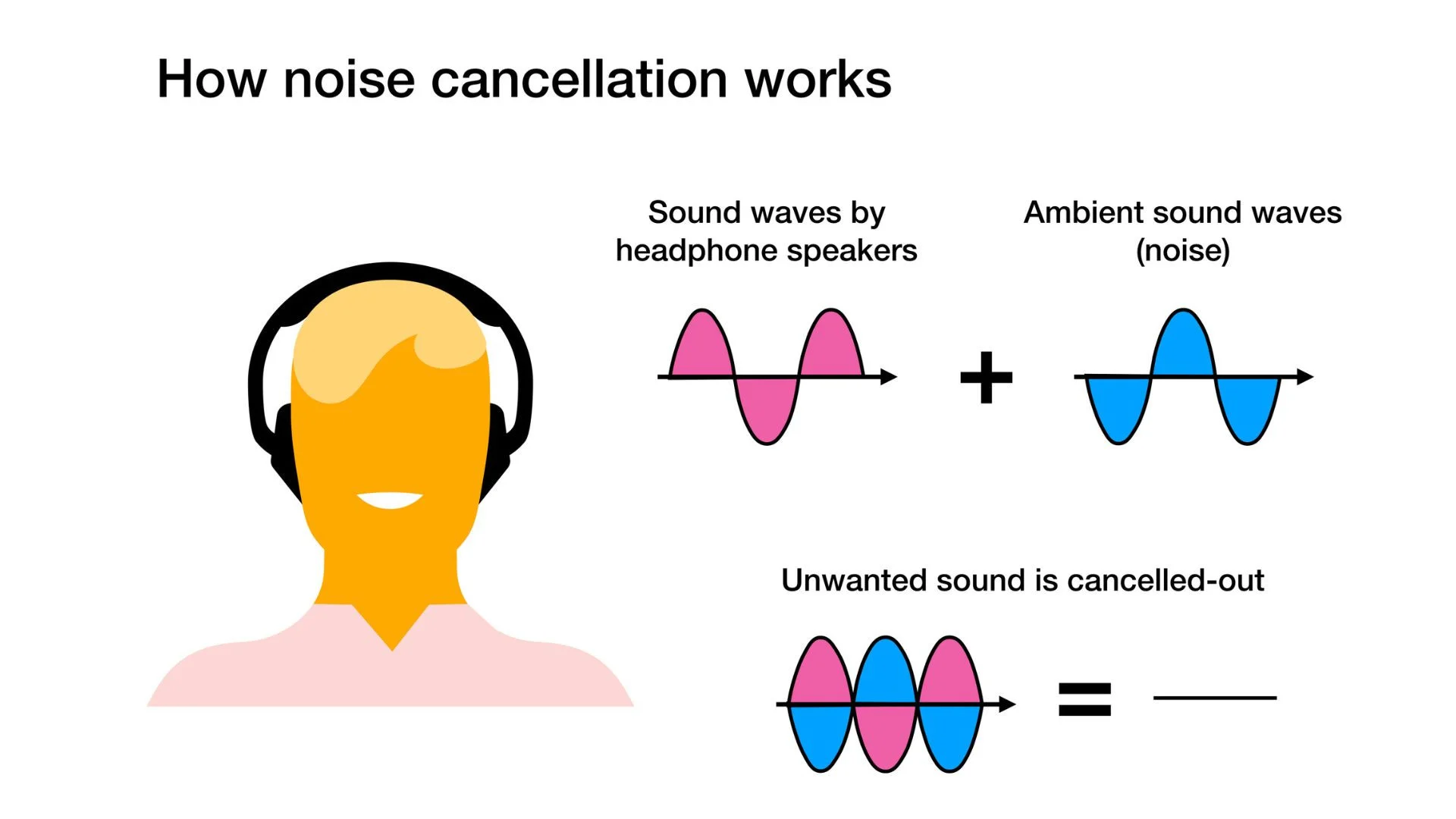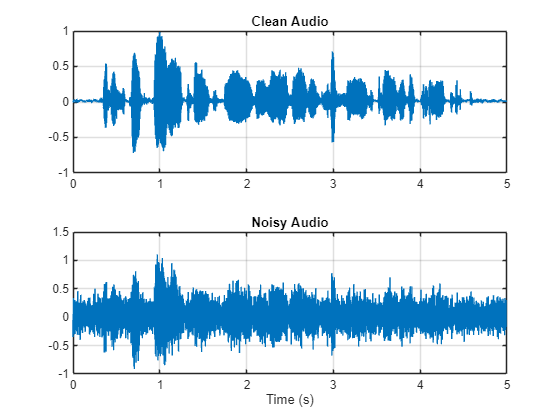Noise Cancellation: Complete Guide to Hardware and Software Solutions in 2025
Noise cancellation technology has revolutionized how we experience audio, whether you're listening to music, recording podcasts, or cleaning up video content. From advanced headphones to powerful online tools, understanding the different types of noise cancellation can help you choose the right solution for your needs.
What is Noise Cancellation?
Noise cancellation is a method for reducing unwanted sound by using active sound control technology that generates a sound wave that is the exact mirror image of the noise you want to cancel. When these opposing sound waves combine, they effectively cancel each other out, creating a quieter listening environment.

Types of Noise Cancellation
Active Noise Cancellation (ANC)
Active Noise Cancellation uses noise-cancelling speakers and microphones that "listen" to sounds outside and inside of the earphone, with an ANC chipset inverting the soundwaves. This technology is commonly found in premium headphones and earbuds from brands like Sony, Bose, and Apple.
Benefits of Active Noise Cancellation:
Reduces low-frequency ambient noise (traffic, airplane engines, air conditioning)
Preserves audio quality while minimizing distractions
Ideal for travel and noisy environments
Battery-powered for real-time processing
Passive Noise Isolation
Passive noise isolation occurs when headphones or earbuds naturally block outside noise through their physical design, isolating you from ambient noise instead of actively using technology to cancel it out.
Key Features:
No battery required
Relies on materials like foam or silicone seals
More effective against high-frequency sounds
Often more affordable than active solutions
Software-Based Noise Cancellation Solutions
While hardware noise cancellation works in real-time during listening, software solutions focus on cleaning up existing audio and video files. This is particularly valuable for content creators, podcasters, and anyone dealing with noisy recordings.
Professional Audio Editing Software
Traditional audio editing programs like Audacity, Adobe Audition, and Logic Pro offer noise reduction features, but they often require technical expertise and time-consuming manual adjustments.
AI-Powered Online Tools
Modern AI-driven solutions have made noise removal accessible to everyone. Online AI tools can easily remove unwanted background noise from audio and video files, designed to improve recording quality by removing unwanted noise.
Advantages of Online Noise Cancellation Tools:
No software installation required
AI-powered automatic detection and removal
Works with both audio and video files
Often free or low-cost options available
User-friendly interfaces for beginners

Best Use Cases for Different Noise Cancellation Methods
When to Use Hardware Noise Cancellation
Commuting and Travel:
Active noise cancelling headphones excel at reducing engine noise and ambient sounds
Open Office Environments:
Block out conversations and keyboard typing
Studying or Focus Work:
Minimize environmental distractions
Music Listening:
Enjoy audio without raising volume to dangerous levels
When to Use Software Noise Cancellation
Podcast Production:
Clean up home recordings with background noise
Video Content Creation:
Remove unwanted sounds from video footage
Interview Recordings:
Enhance clarity of recorded conversations
Music Production:
Isolate vocals or instruments from noisy recordings
Business Presentations:
Improve audio quality of recorded meetings
How to Choose the Right Noise Cancellation Solution
For Hardware Solutions
Consider these factors when selecting noise-cancelling headphones or earbuds:
Budget: Entry-level ANC headphones start around $100, while premium models can exceed $400
Battery Life: Active noise cancellation drains battery faster
Comfort: Important for extended wear during travel or work
Sound Quality: Balance between noise cancellation and audio fidelity
Portability: Foldable designs for travel convenience
For Software Solutions
When choosing noise cancellation software or online tools:
File Format Support: Ensure compatibility with your audio/video formats
Processing Speed: Important for large files or batch processing
Quality Preservation: Advanced algorithms maintain original audio quality
Ease of Use: Consider your technical expertise level
Cost: Free tools vs. subscription services vs. one-time purchases
Free Online Noise Cancellation: The Accessible Solution
For many users, especially those dealing with occasional noise issues, free online tools provide an excellent starting point. These web-based solutions eliminate the need for expensive software licenses or complex installations.
Benefits of Free Online Noise Cancellation:
Immediate access without downloads
No learning curve for complex software interfaces
Perfect for one-time or occasional use
Works on any device with internet access
Often powered by advanced AI algorithms
Common Applications:
Cleaning up smartphone recordings
Improving Zoom or video call recordings
Enhancing social media content
Preparing audio for presentations
Removing background noise from personal videos
Advanced Noise Cancellation Technologies in 2025
AI and Machine Learning Integration
Modern noise-cancellation tools leverage AI technology, with solutions like NVIDIA RTX Voice using GPU power to reduce background noise and enhance audio clarity during gaming, streaming, and video calls.
Real-Time Processing Improvements
Recent advances allow for:
Instant background noise removal during live streams
Adaptive algorithms that learn from your environment
Multi-frequency noise targeting
Voice enhancement alongside noise reduction
Tips for Maximizing Noise Cancellation Effectiveness
Hardware Optimization
Proper Fit:
Ensure ear cups or earbuds create a good seal
Battery Management:
Keep ANC devices fully charged for optimal performance
Environment Awareness:
ANC works best with consistent, low-frequency noise
Volume Balance:
Don't over-compensate with high volumes
Software Processing Tips
File Quality:
Higher quality input files produce better results
Noise Profiling:
Some tools benefit from sampling the background noise first
Processing Settings:
Adjust intensity to avoid over-processing artifacts
Multiple Passes:
Sometimes applying gentle noise reduction multiple times works better than aggressive single-pass processing
Future of Noise Cancellation Technology
The noise cancellation landscape continues evolving with emerging technologies:
Spatial Audio Integration: Combining noise cancellation with 3D audio positioning
Environmental Adaptation: Smart algorithms that adjust to different noise environments automatically
Health Monitoring: Integration with hearing protection and health tracking
Cross-Platform Compatibility: Seamless integration across devices and applications
Conclusion
Noise cancellation technology offers solutions for virtually every audio challenge, from daily commuting with ANC headphones to cleaning up important recordings with online tools. The choice between hardware and software solutions depends on your specific needs, budget, and technical requirements.
For real-time listening experiences, active noise cancelling headphones provide unmatched convenience and performance. For post-processing audio and video content, modern online tools offer powerful AI-driven noise removal that rivals professional software—often at no cost.
Whether you're a content creator, business professional, or casual user dealing with noisy recordings, today's noise cancellation options provide accessible solutions that deliver professional-quality results. The key is understanding which approach best fits your specific situation and requirements.